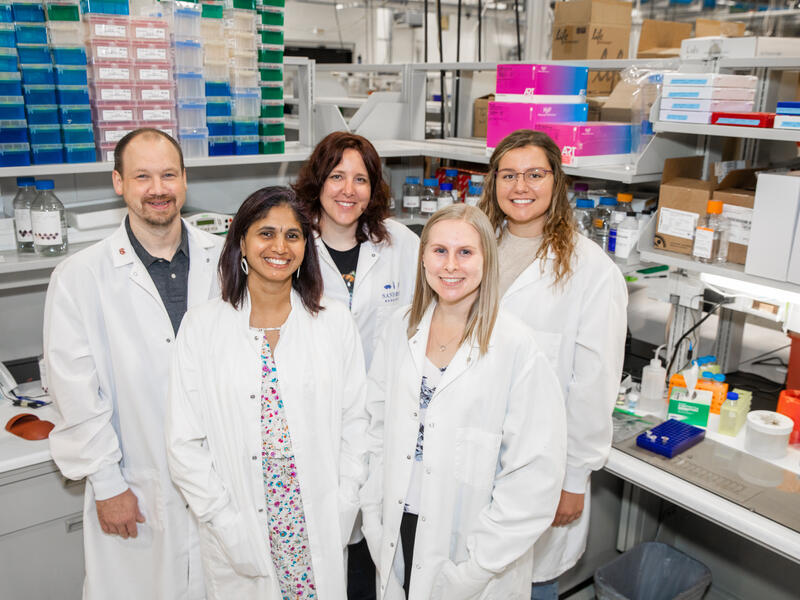Indra Chandrasekar, Ph.D., researcher at Sanford Health, recently received a $1.9 million grant for her work studying a group of genes that are associated with kidney disease in humans. Her lab will further investigate the role of actin cytoskeleton and associated molecular motor proteins in cellular transport pathways related to kidney disease.
The kidney has two functional regions within the organ. The glomerulus filters the blood and the renal tubules regulates ion and water transport. This grant will support the study of a group of genes called nonmuscle myosin II. Mutations in one of these genes lead to a rare disease in humans called MYH9-related disease.
“We want to determine how these genes regulate absorption of sodium (salt) in the kidney,” said Dr. Chandrasekar. “These genes have been linked to kidney disease for the past 25 years. Our goal is to determine what goes wrong within the kidney cells when the gene(s) function is lost.”
The Chandrasekar lab at Sanford Research has been actively studying this group of genes for the past seven years. Results from the studies done through this grant will benefit the understanding of genetic disorders that compromises both glomerular and tubular kidney function.
Learn more
- Cellular miscommunication may be root of kidney disease
- Rare, but not alone: CoRDS connects rare disease patients
- Sanford recognized for kidney transplant care
…
